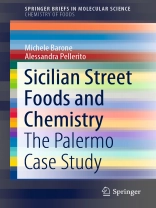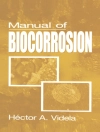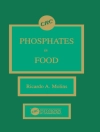This book reviews the authenticity of certain Street Food specialties from the viewpoint of food chemists. At present, the food market clearly shows the predominance of fast-food operators in many Western countries. However, the concomitant presence of the traditional lifestyle model known as the Mediterranean Diet in Europe has also been increasingly adopted in many countries, in some cases with unforeseen effects such as offering Mediterranean-like foods for out-of-home consumption. This commercial strategy also includes the so-called Street Food, which is marketed as a variation on Mediterranean foods. One of the best known versions of Street Food products can be found in Sicily, Italy, and particularly in its largest city, Palermo. Because of certain authenticity issues, the Italian National Council of Research Chemists has issued four procedural guidelines for various Palermo specialties with the aim of attaining the traditional specialty guaranteed status in accordance with European Regulation (EU) No 1151/2012. The first chapter of the book provides a brief introduction to the general concept of Street Foods. The remaining four chapters describe four food specialties – Arancina, Sfincionello, Pane ca meusa, and Pane e panelle – typically produced in Palermo, with particular reference to their chemical composition, identification of raw materials from a chemical viewpoint, permissible cooking and preparation procedures (with chemical explanations), preservation, and storage. The book offers a unique guide to Street Food authenticity, and can also serve as a reference work for other traditional/historical products.
Tabla de materias
The Street Food Culture in Europe.- The Authentic Arancina.- The Authentic Sfincionello.- The Authentic Pane ca Meusa and Pane e Panelle.- The Authentic Pane e Panelle.
Sobre el autor
Michele Barone is an Experienced Consultant working in the field of food science and technology, and in restoration chemistry. His work in food science focuses mainly on food packaging and correlated failures, and selected food products with a dedicated tradition (for instance, the Mediterranean Diet). More recently, he has written about food traceability systems in the field of European cheese products. Michele currently works at the Association ‘Componiamo il Futuro’ (CO.I.F.) in Palermo, Italy (sector: professional training). He has recently published ‘Dietary Patterns, Food Chemistry and Human Health’ and ‘Quality Systems in the Food Industry’ in the series Springer Briefs in Chemistry of Foods.
Alessandra Pellerito is a Biologist who graduated from the University of Bologna, Italy (2013), after completing her initial B.Sc. in Biology (Palermo, Italy). After a short stay in the United Kingdom, Dr Pellerito moved to Germany (Magdeburg), where she worked for two years as a Research Assistant at the Leibniz Institute for Neurobiology. At present, Dr. Pellerito works as a Food Quality Responsable in the private sector (Italy). She has published numerous articles on food chemistry, in particular on authenticity problems, traceability, and food labeling in the current European market.












